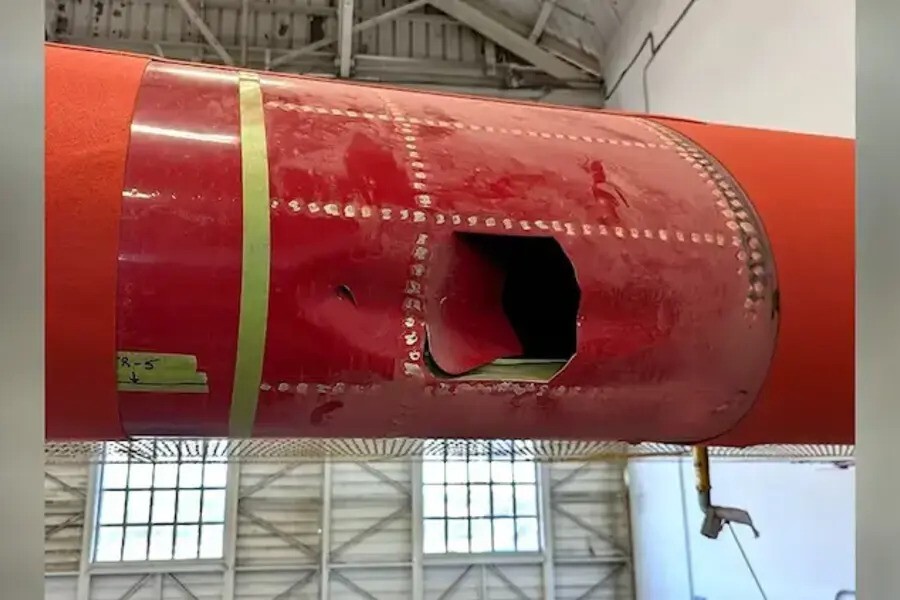A drone operator is facing serious legal consequences after his unmanned aircraft collided with a firefighting plane during the Palisades Fire in California. Federal prosecutors announced on Friday that Peter Akemann, 56, of Culver City, has agreed to pay over $65,000 in restitution and faces up to one year in prison after the incident grounded a critical firefighting aircraft for several days.
The collision occurred on January 9, 2025, when Akemann’s drone struck a “super scooper” aircraft—designed to collect and drop water on active wildfires—damaging its left wing. According to prosecutors, the impact created a hole approximately 3 inches by 6 inches in the wing, forcing the aircraft out of service for five days. This disruption occurred at a crucial time as fire crews were battling one of the largest wildfires in Southern California’s history.
“We need all the planes we can get in a wildfire of this scale. Taking a key aircraft out of commission for five days has a real impact on operations,” acting U.S. Attorney Joseph McNally said at a press conference.
The Palisades Fire, which began on January 7, has burned over 23,400 acres in Los Angeles County and damaged nearly 8,000 structures. It is now 98% contained, according to Cal Fire. The cause of the fire remains under investigation.
Investigators traced parts of the damaged drone back to Akemann. According to McNally, Akemann admitted he launched the drone from a parking garage in Santa Monica to observe wildfire damage but lost control of it after it flew 1.5 miles away. At the time, the Federal Aviation Administration (FAA) had imposed temporary flight restrictions (TFRs) that prohibited drone operations in the wildfire zone.
While there is no evidence the collision was intentional, authorities emphasized the severity of the situation. “This case is about deterrence,” McNally said. “If you fly a drone recklessly near a wildfire, law enforcement will find you and hold you accountable.”
Akemann has agreed to plead guilty to one count of unsafe operation of an unmanned aircraft, a federal misdemeanor. In addition to the $65,169 restitution, he has also agreed to perform 150 hours of community service for Southern California wildfire relief efforts. His prison sentence, if any, will be determined by a judge.
The incident has reignited concerns about drones interfering with emergency operations. Unauthorized drones have become an increasing problem during wildfires, often hindering the work of firefighting crews and putting lives at risk. The FAA routinely issues TFRs during wildfires, warning that violating these restrictions can lead to heavy fines or criminal charges.
“This isn’t just about one drone,” McNally added. “It’s about the larger message: flying drones in restricted airspace can endanger lives and critical operations.”
Akemann’s attorneys, Vicki Podberesky and Glen Jonas issued a statement on his behalf, expressing his remorse for the incident. “Mr. Akemann is deeply sorry for the mistake he made by flying a drone near the boundary of the Palisades fire area on January 9, 2025, and for the resulting accident. He accepts responsibility for his grave error in judgment and is cooperating with the government to make amends.”
The defense team also cited technical issues that may have contributed to the collision, including a failure of the drone’s geo-fencing feature. Geo-fencing technology is designed to prevent drones from entering restricted areas, but Akemann’s attorneys plan to argue that the feature did not function as expected.
Prosecutors acknowledged Akemann’s cooperation in the investigation but stressed that his actions were reckless and avoidable. “The fact that he has agreed to plead guilty and accept responsibility is important here,” McNally said.
Drone interference has become a growing issue during wildfire operations. Low-flying firefighting planes, such as the super scooper, often operate at altitudes that overlap with drone airspace, increasing the risk of collisions. When drones enter restricted areas, aircraft are sometimes forced to halt operations, delaying crucial fire suppression efforts.
The super scooper involved in the collision is a critical tool for battling wildfires. Supplied by the government of Quebec, the aircraft can scoop and drop thousands of gallons of water on fire zones in a single flight. Losing one of these planes, even temporarily, can have significant consequences during large-scale wildfires.
Fire and aviation authorities have called for stricter enforcement of drone regulations and greater public awareness about the risks drones pose to emergency operations. “When unauthorized drones fly near wildfires, they create dangerous and costly situations for everyone involved,” said FBI Assistant Director in Charge Akil Davis.
Akemann’s case is one of the most high-profile drone-related incidents in recent wildfire history. Officials hope the case will serve as a deterrent to others who might consider flying drones near active fires.
“This is about ensuring that people understand the consequences of flying drones in restricted zones,” McNally said. “If you disrupt firefighting operations, you’re putting lives, property, and critical resources at risk.”
Akemann is expected to appear in court on Friday to formally enter his plea. His sentencing will likely take place in the coming weeks, with mitigating factors such as his cooperation and remorse considered in the final decision. For now, federal prosecutors are urging a fair but firm penalty to send a clear message about the importance of drone safety during emergency operations.
As the Palisades Fire nears full containment, authorities remain focused on recovery and preventing similar incidents in the future. Meanwhile, Akemann’s case underscores the critical need for greater accountability and education around drone operations in sensitive areas.

